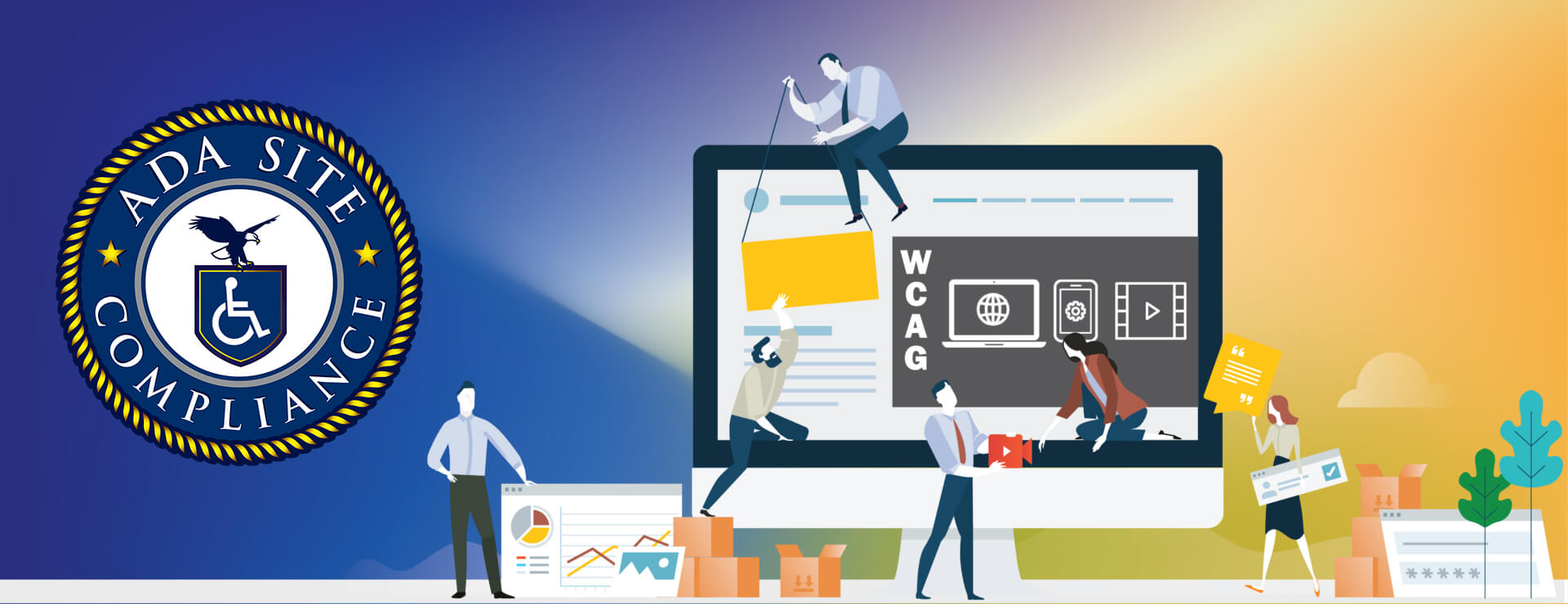Accessibility for Ontarians with Disabilities Act (AODA)

The Accessibility for Ontarians with Disabilities Act (AODA) law sets out the process for developing and enforcing accessibility standards designed by industry representatives and people with disabilities. It’s the first accessibility legislation and standards in Ontario.
In 2021, the AODA will require Canadian businesses with 50 or more employees to file a compliance report and ensure that all internet websites and web content are accessible to people with disabilities.
AODA has two key effective dates, separated by one day:
-
December 31, 2020: A business or non-profit organization with 20 or more employees in Ontario must file an Accessibility Compliance Report that confirms they have met current accessibility requirements under AODA. Read more information about filing a compliance report.
-
January 1, 2021: Businesses and nonprofits with 50 or more employees, public sector organizations with 20-plus employees, and all public sector publishers, educational institutions, and municipalities in Ontario must make website and web content accessible.
To be considered accessible, organizations must conform with WCAG 2.1 Level AA. To meet WCAG 2.1 Level AA conformance, the website is usable and understandable for the majority of people with or without disabilities. Some notable WCAG 2.1 Level AA requirements include:
- Color contrast is, in most instances, at least 4.5:1
- Alt text or a similar solution is used for images that convey meaning
- Navigation elements are consistent throughout the site
- Form fields have accurate labels
- Status updates can be conveyed through a screen reader
- Headings are used in logical order
If organizations in Canada aren’t accessible by the deadline, they can be fined up to $50,000 (CND) per day.
To be considered accessible under the AODA, organizations must conform with WCAG 2.1 Level AA.
Learn more about the Accessibility for Ontarians with Disabilities Act (AODA)
Have a question?
We’re always here to help.
The ADA prohibits any private businesses that provide goods or services to the public, referred to as “public accommodations,” from discriminating against those with disabilities. Federal courts have ruled that the ADA includes websites in the definition of public accommodation. As such, websites must offer auxiliary aids and services to low-vision, hearing-impaired, and physically disabled persons, in the same way a business facility must offer wheelchair ramps, braille signage, and sign language interpreters, among other forms of assistance.
All websites must be properly coded for use by electronic screen readers that read aloud to sight-impaired users the visual elements of a webpage. Additionally, all live and pre-recorded audio content must have synchronous captioning for hearing-impaired users.
Websites must accommodate hundreds of keyboard combinations, such as Ctrl + P to print, that people with disabilities depend on to navigate the Internet.
Litigation continues to increase substantially. All business and governmental entities are potential targets for lawsuits and demand letters. Recent actions by the Department of Justice targeting businesses with inaccessible websites will likely create a dramatic increase of litigation risk.
Big box retailer Target Corp. was ordered to pay $6 million – plus $3.7 million more in legal costs – to settle a landmark class action suit brought by the National Federation of the Blind. Other recent defendants in these cases have included McDonald’s, Carnival Cruise Lines, Netflix, Harvard University, Foot Locker, and the National Basketball Association (NBA). Along with these large companies, thousands of small businesses have been subject to ADA website litigation.
Defendants in ADA lawsuits typically pay plaintiff's legal fees, their own legal fees for defending the litigation, and potential additional costs. In all, the average cost can range from tens of thousands of dollars, to above six figures. There are also high intangible costs, such as added stress, time and human capital, as well as reputational damage. Furthermore, if the remediation is incomplete, copycat suits and serial filers can follow, meaning double or triple the outlay. It's vital to implement a long-term strategy for ensuring your website is accessible and legally compliant.